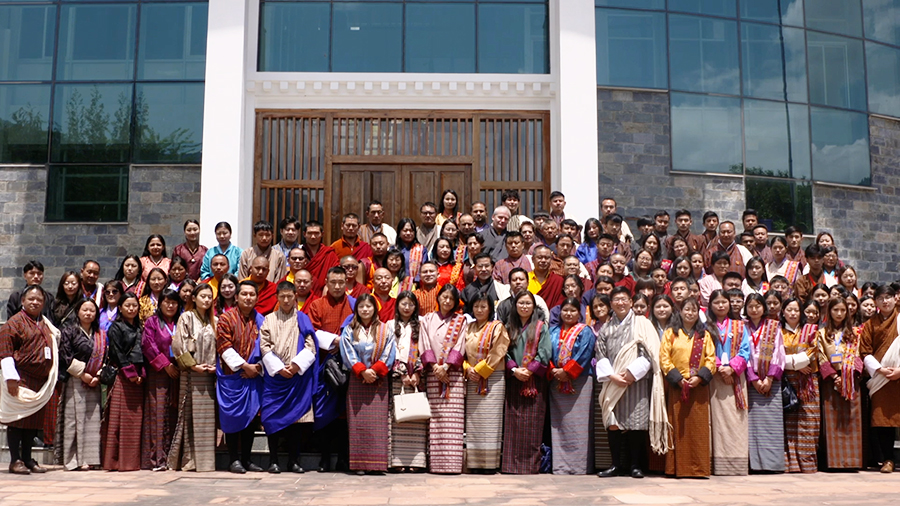 One key takeaway from the Earth Day is that the planet belongs to other living beings as much as it does to humans. As climate change affects the environment, the day is a wake-up call for individuals and communities to take urgent action to protect the natural world that we share with other living beings. Acknowledging that all life on this planet is interconnected, Bhutan observed the day with a focus on climate and a message to protect all living beings yesterday.
One key takeaway from the Earth Day is that the planet belongs to other living beings as much as it does to humans. As climate change affects the environment, the day is a wake-up call for individuals and communities to take urgent action to protect the natural world that we share with other living beings. Acknowledging that all life on this planet is interconnected, Bhutan observed the day with a focus on climate and a message to protect all living beings yesterday.
Under the theme “One Earth, Many Lives: Protecting All Beings We Share It With,” the Duedroi Rangwang Zhidey Tshogpa, a leading animal welfare organisation in the country, hosted the Earth Day celebrations at the Royal University of Bhutan’s Convention Hall.
The event was held to highlight the interconnection between animal welfare and environmental protection, to show that environmental degradation and climate change have a devastating impact on animals’ habitat and health.
It was an opportunity to raise awareness and promote sustainable practices such as plant-based lifestyles, which would significantly reduce harm to animals and the environment.
“Our main motive is to promote vegetarian foods. We aimed to advocate for the lives of all sentient beings that is hampered due to climate change,” said Kinley Kuenzang, the Offtg. Executive Director of Duedroi Rangwa Zhidhey Tshogpa.
The event also featured activities that educate, inspire and mobilise communities to adopt responsible and animal-friendly choices.
“The pollution from the meat industry affects the environment. There are many studies on it, one of which is, waste from a single animal equally affects the environment as the pollution caused by a vehicle in a year. So, if we reduce meat consumption and animal slaughter, there won’t be much harm to the environment,” said Tshering Penjor, the chairman of Duedroi Rangwa Zhidhey Tshogpa.
According to international research, meat is one of the biggest contributors to environmental degradation due to the inefficiency of animals in converting feed to meat. It is assumed that 75-90 per cent of the energy consumed by livestock is needed for body maintenance or lost in by-products.
The organisers said they have been promoting vegetarianism by providing training to make vegetarian dishes in all districts. They plan to organise similar training next month.
Jamyang Loday
Edited by Phub Gyem







